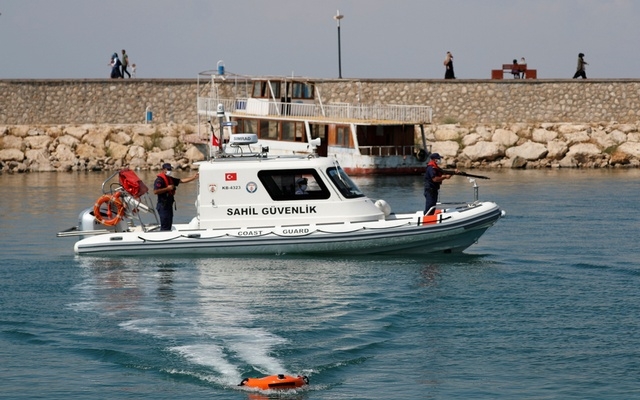Turkey reinforces border to block Afghan migrant wave

Afghans who manage to make the weeks-long journey through Iran on foot to the Turkish border face a three-metre high wall, ditches or barbed wire as Turkish authorities step up efforts to block any refugee influx into the country.
The beefed up border measures in Turkey, which already hosts nearly 4 million Syrian refugees and is a staging post for many migrants trying to reach Europe, began as the Taliban started advancing in Afghanistan and took over Kabul last week.
Authorities plan to add another 64 km by the end of the year to a border wall started in 2017. Ditches, wire and security patrols around the clock will cover the rest of the 560 km frontier.
"We want to show the whole world that our borders are unpassable," Mehmet Emin Bilmez, governor of the eastern border province of Van, told Reuters at the weekend. "Our biggest hope is that there is no migrant wave from Afghanistan."
Turkey is not the only country putting up barriers: Its neighbour Greece has just completed a 40-km fence and surveillance system to keep out migrants who still manage to enter Turkey and try to reach the European Union.
Authorities say there are 182,000 registered Afghan migrants in Turkey and up to an estimated 120,000 unregistered ones. President Tayyip Erdogan urged European countries to take responsibility for any new influx, warning that Turkey had no intention of becoming "Europe's migrant storage unit".
The number of irregular Afghan migrants detained in Turkey so far this year is less than a fifth of the number detained in 2019, and officials say they have not yet seen signs of a major surge since last week's Taliban victory, though the long distances mean refugees could take weeks to arrive.
The Turkish side of the mountainous border with Iran is lined by bases and watchtowers. Patrol cars monitor around the clock for movement on the Iranian side, from where migrants, smugglers and Kurdish militants frequently try to cross into Turkey.
Migrants who are spotted getting through at the border are returned to the Iranian side, though most return and try again, according to security forces.
"No matter how many high-level measures you take, there may be those who evade them from time to time," Bilmez said.
